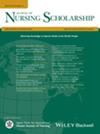Experiences of Family Caregivers of Children Aged 1–23 Months Who Have Received Pediatric Palliative Care: A Systematic Review With Qualitative Metasynthesis
Abstract
Introduction
Family caregivers of children receiving pediatric palliative care (PPC) play a crucial role in their care and wellbeing, especially during the early stages of life.
Objective
To explore the experience of family caregivers of children aged 1–23 months who are receiving pediatric palliative care (PPC).
Methods
A systematic review of qualitative studies was conducted using the databases PubMed, Scopus, Web of Science, CINAHL, PsycINFO, and Cuiden. The studies were appraised using the Critical Appraisal Skills Programme tool. The selected studies were synthesized using Noblit and Hare's meta-ethnographic method.
Results
Eleven studies, 169 themes, 36 metaphors and four main themes were identified. Caregivers develop coping strategies related to meaning-making, faith, maintaining hope, and decision-making abilities. They perceive limited time with the child due to structural constraints and the child's deteriorating health, which sometimes prevents them from recognizing their child's identity. Caregivers strive to remain united and rebuild the daily family life they long for, but face challenges related to self-care, maintaining employment, and caring for siblings and their partner. In many cases, they are unsatisfied with the care they receive, attributed to a lack of technical training and understanding of the principles of pediatric palliative care (PPC) by healthcare staff, poor communication skills, and inadequate coordination. Caregivers highlight the role of nurses and the PPC team, advanced care planning, and post-mortem care as positive aspects.
Discussion/Conclusion
Caregivers' experiences reveal coping strategies, active decision-making, constant challenges, healthcare interactions, and a need for improved comprehensive support.
Clinical Relevance
This study underscores the importance of addressing the unique needs of family caregivers of children aged 1–23 months receiving pediatric palliative care (PPC), highlighting their struggles with social isolation, neglected self-care, and disrupted family life. Healthcare providers should prioritize age-specific approaches to PPC, focusing on improving communication, care coordination, and understanding of palliative care principles to better support these caregivers.





 求助内容:
求助内容: 应助结果提醒方式:
应助结果提醒方式:


